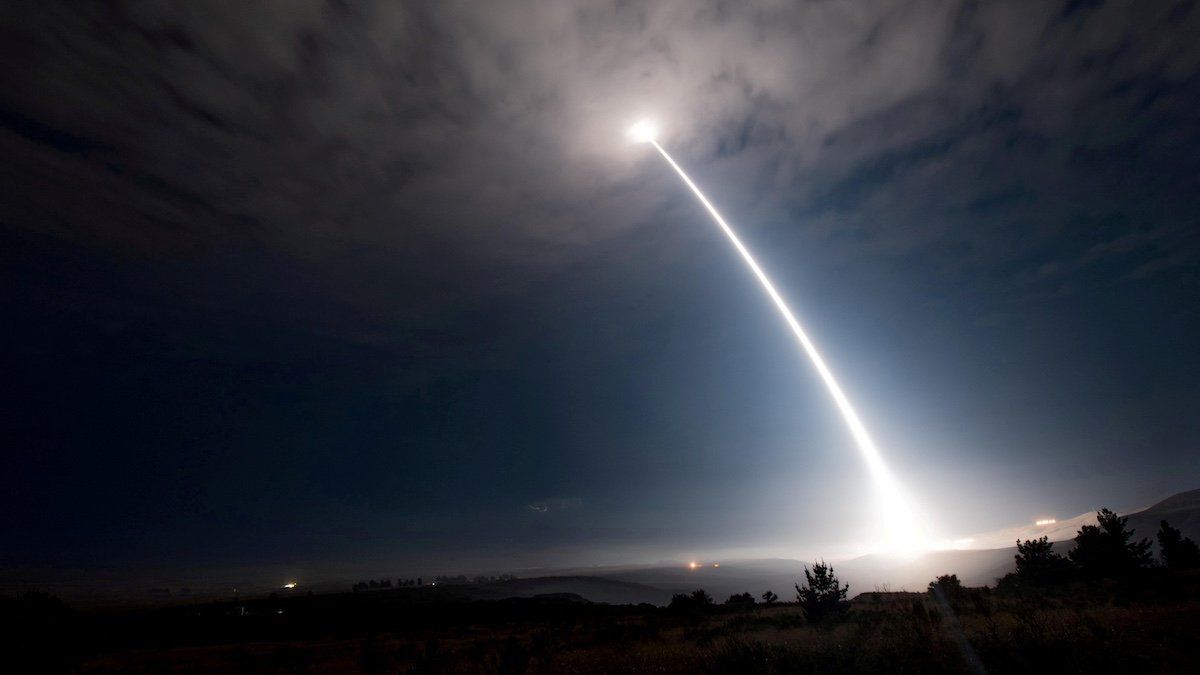An unarmed Minuteman III intercontinental ballistic missile launches during an operational test at 2:10 a.m. Pacific Daylight Time at Vandenberg Air Force Base, California, U.S., August 2, 2017. Picture taken August 2, 2017.
The White House on Wednesday tried to ease Beijing’s “serious concerns” over reports that the US is adjusting its nuclear strategy to incorporate more of a focus on East Asia. The US National Security Council said it “is not a response to any single entity, country, nor threat” and that North Korea and Russia factor into the shift.
China’s foreign ministry said “the United States has constantly stirred up the so-called China nuclear threat theory in recent years.” China objects because it has always maintained a no-first-use policy with its nuclear weapons, and its arsenal is small compared to Washington’s 3,700 warheads.
Still, China has been arming – the Pentagon estimated last year that Beijing now has 500 warheads and may reach 1,000 by 2030. But from China’s point of view, that’s just playing catch up, says Eurasia Group’s Jeremy Chan. “Beijing sees US rhetoric about arms control as an effort to lock in the Chinese arsenal at a level that is still a fraction of Washington’s,” he explained. “They want to play for more time.”
US and Chinese interests may not be entirely misaligned. Chinese President Xi Jinping reportedly told Russian President Vladimir Putin, for example,to quit threatening to use nuclear weapons in Ukraine when the two met in Moscow last year, and Chan notes that nuclear proliferation is one of the few issues where Beijing won’t cover for North Korea.